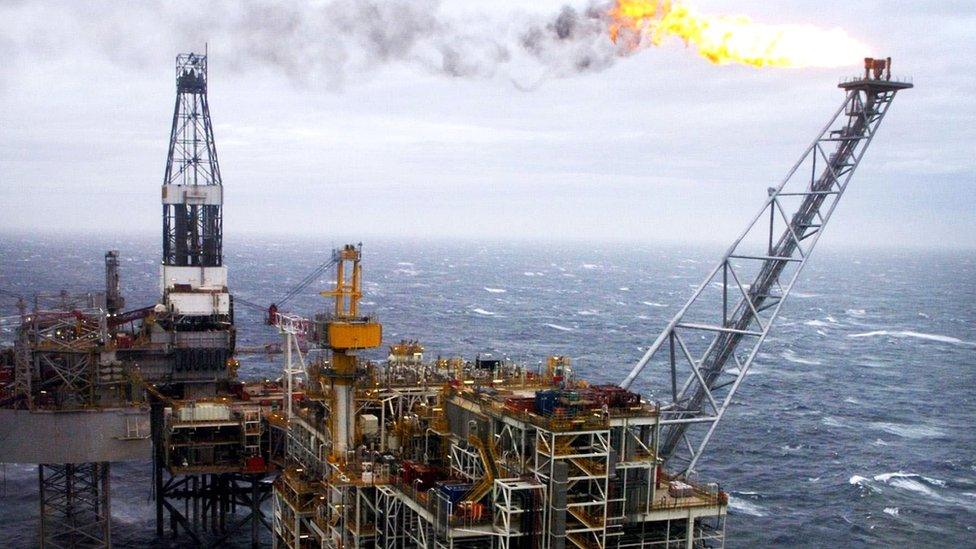Coronavirus: Third of North Sea oil and gas 'could be untouched'
- Published
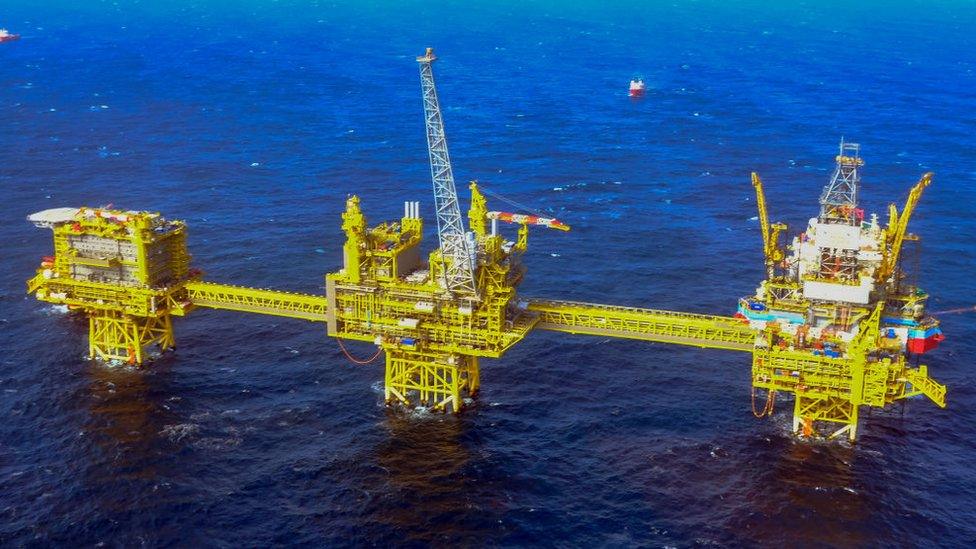
A third of all available oil and gas in the North Sea could be left untouched if the price of Brent Crude remains at $25 a barrel, according to a new study.
A global oversupply of oil pushed prices to the lowest level in 20 years.
At its peak, a barrel of Brent Crude oil sold for about $120. But in recent weeks, that fell as low as $16.
Economist Prof Alex Kemp, from the University of Aberdeen, has modelled the impact of $25, $35 and $45 oil prices, with corresponding gas rates.
He also predicts long-term investment will fall.
For the past few years the North Sea has been adapting to an oil price of about $60 a barrel.
However, since the coronavirus crisis, it has plummeted.
Prof Kemp said, at the lowest figure of $25, 35% of available oil and gas could be uneconomic to drill.
And even at the higher price of $45, it was calculated that 28% could be left where it is.
'Costs will increase'
The report, compiled with colleague Linda Stephen, states: "This study uses costs as before the effects of the Covid-19 crisis were fully understood.
"Given the current restrictions on travel and the social distancing rules it is likely that some costs will increase.
"The future of the UKCS (UK Continental Shelf) at the oil and gas prices employed in this study depends critically on technological innovations which can significantly enhance productivity."
Industry body Oil and Gas UK recently warned that 30,000 jobs could be lost as a result of the coronavirus pandemic and the low oil price.
The industry fears the problems will last much longer than the Covid-19 pandemic, and that has meant many workers are being laid off rather than furloughed.
Ross Dornan, OGUK's market intelligence manager, said of the new report: "We know that low oil and gas prices, along with the impact of Covid-19 on operations, have created a very uncertain outlook."
'Devastating implications'
Ryan Morrison, a "just transition" campaigner with Friends of the Earth, called for a "managed phase out" of fossil fuels to tackle the climate crisis.
He said workers should not be expected to bear the brunt of oil downturns "as they are doing right now".
"The impacts of this approach are already being felt hard by the workforce with huge and devastating implications for livelihoods and surrounding communities particularly in the north east of Scotland," he added.
"There is an urgent need for the Scottish and UK government to create plans to deliver a comprehensive just transition - retaining and retraining the skilled workforce into secure and sustainable jobs in the green economy."

A SIMPLE GUIDE: How do I protect myself?
AVOIDING CONTACT: The rules on self-isolation and exercise
LOOK-UP TOOL: Check cases in your area
MAPS AND CHARTS: Visual guide to the outbreak

- Published28 April 2020
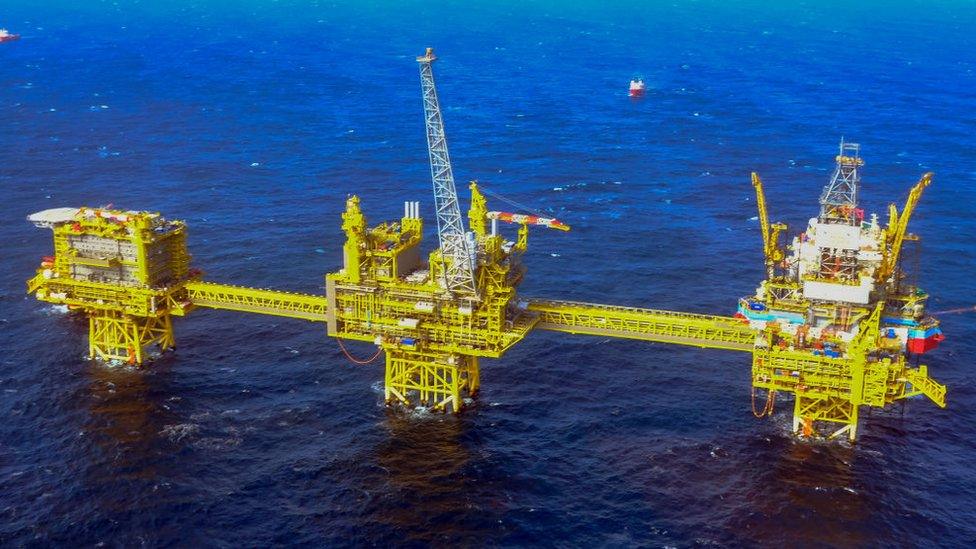
- Published2 April 2020

- Published30 March 2020
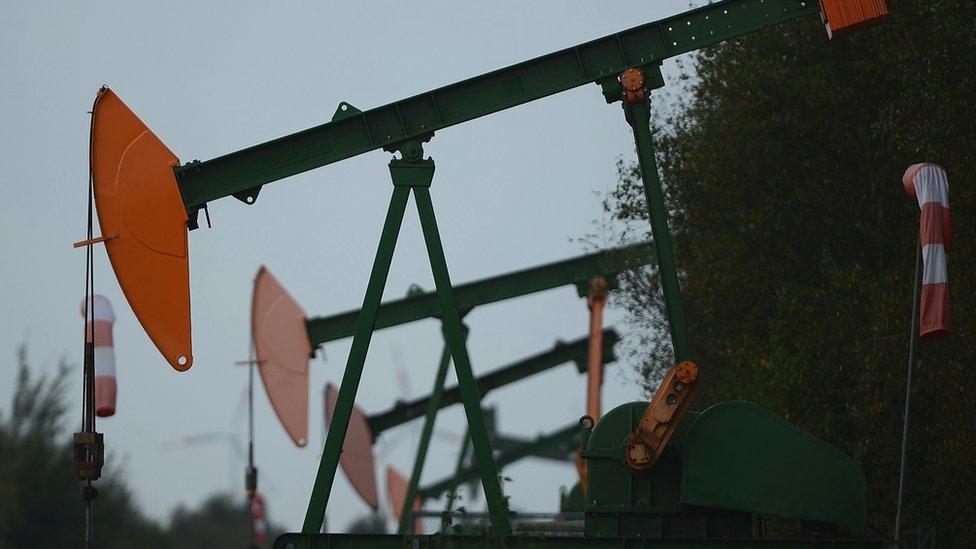
- Published22 April 2020
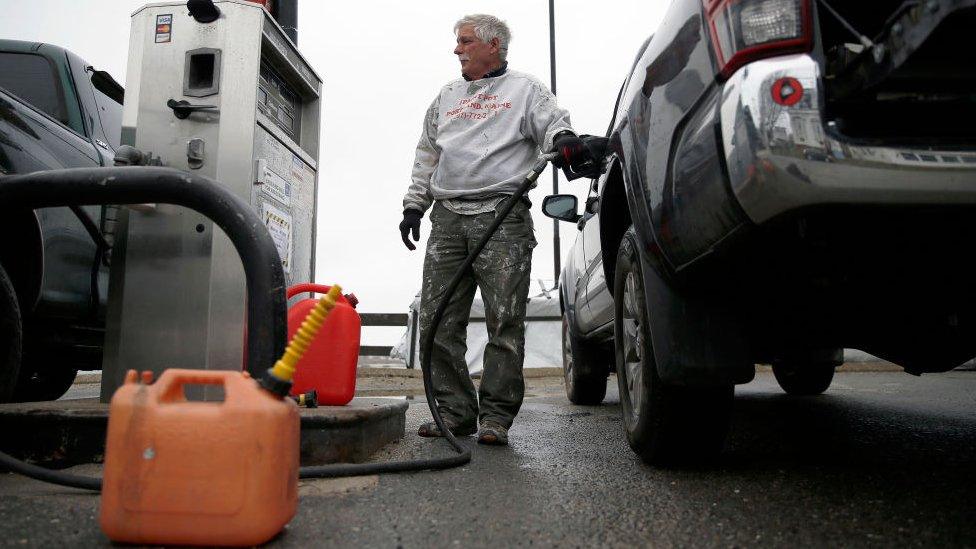
- Published22 April 2020
